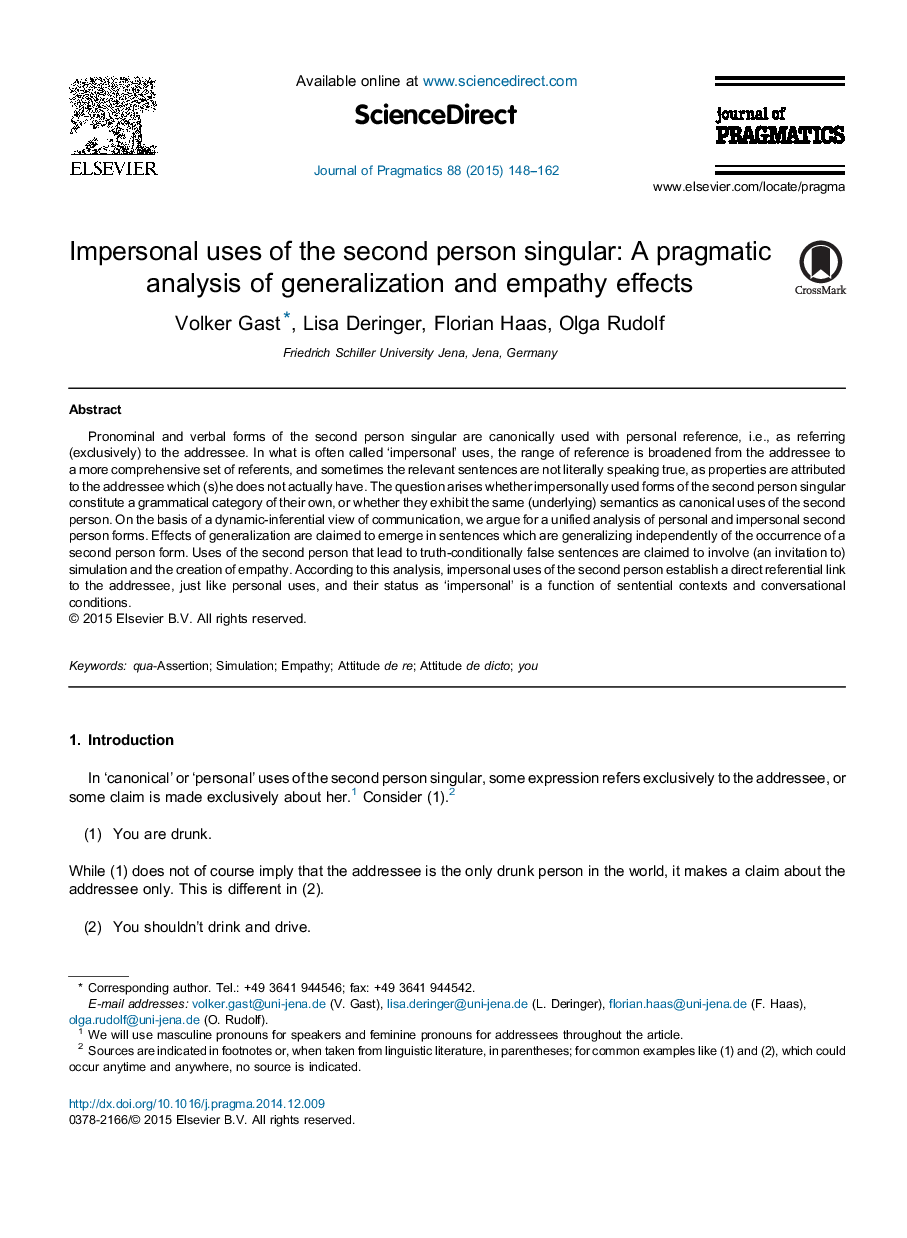| Article ID | Journal | Published Year | Pages | File Type |
|---|---|---|---|---|
| 932542 | Journal of Pragmatics | 2015 | 15 Pages |
Pronominal and verbal forms of the second person singular are canonically used with personal reference, i.e., as referring (exclusively) to the addressee. In what is often called ‘impersonal’ uses, the range of reference is broadened from the addressee to a more comprehensive set of referents, and sometimes the relevant sentences are not literally speaking true, as properties are attributed to the addressee which (s)he does not actually have. The question arises whether impersonally used forms of the second person singular constitute a grammatical category of their own, or whether they exhibit the same (underlying) semantics as canonical uses of the second person. On the basis of a dynamic-inferential view of communication, we argue for a unified analysis of personal and impersonal second person forms. Effects of generalization are claimed to emerge in sentences which are generalizing independently of the occurrence of a second person form. Uses of the second person that lead to truth-conditionally false sentences are claimed to involve (an invitation to) simulation and the creation of empathy. According to this analysis, impersonal uses of the second person establish a direct referential link to the addressee, just like personal uses, and their status as ‘impersonal’ is a function of sentential contexts and conversational conditions.
